by Dot Cannon
“How do people know you exist?”
“That patent you have, what does it protect you against?”
“How do you generate revenue?”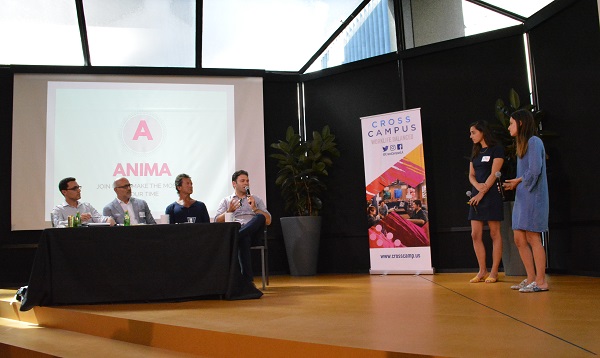
These were just three of the tough questions investors asked early-stage startups, at IDEAS™ Immersion’s “Demo Day”, in downtown Los Angeles on Thursday.
“Demo Day” was the second, and final, open-to-the-public event of IDEAS™ Immersion’s 2017 California program. (But stand by–they’re having a Chicago edition , starting August 27th!)
Nonprofit IDEAS™, a program run by Tel Aviv University – American Friends, partners with numerous groups, including private business, community organizations and institutions of higher learning. Their goal: to connect Israeli and American entrepreneurs, to network and grow their ideas.
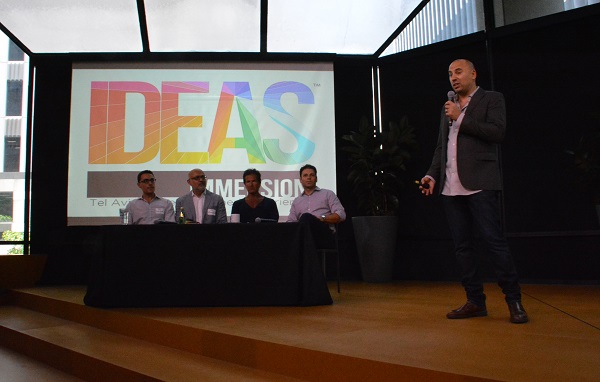
“Last year, we started (this program),” said IDEAS™ Immersion founder David Dorfman in his opening remarks. “We thought, ‘wow, this is incredible, what can we do to help further build the entrepreneurship (in Israel, and connect with North American collaborators)?'”
Accordingly, they’ve evolved. The 2016 edition of IDEAS ™ was a two-day event in Santa Monica (here’s our post on their first day!). As of 2017, they’ve expanded to a multi-week immersion program, in both California and Chicago. And 2018 plans are already aiming higher.
“Next year, (the program will extend across Tel Aviv University),” Dorfman said.
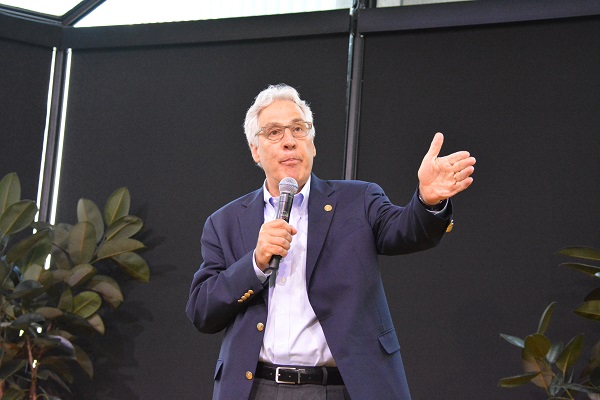
Now, why Tel Aviv University, for entrepreneurial collaboration? Richard Sincere, National Chair of American Friends of Tel Aviv University, explained, as “Demo Day” started.
“Tel Aviv University is the only school outside the United States that’s in the top ten, for entrepreneurs.”
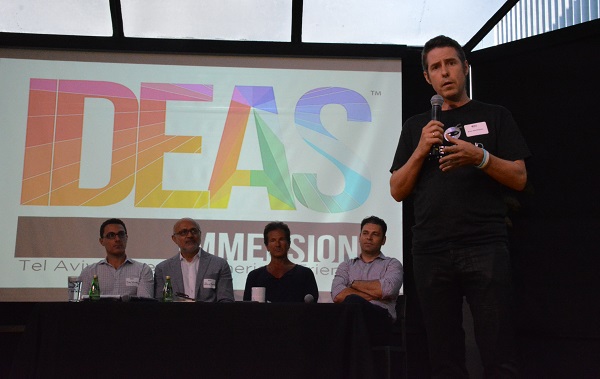
Expert DOJO Founder Brian McMahon, whose organization was co-sponsoring “Demo Day”, referenced Israeli business expertise as he greeted the audience.
“When we got here from Ireland, we were kind of shocked at the high failure rate of startups,” he said. “So we (began observing successful business models)”.
“Eighty per cent of what Expert DOJO does is based on the Israeli (business) model.”
And a key element of that model, McMahon would tell the audience later, was also “a basic building block of Israeli culture”: community.
That element was front and center during “Demo Day”.
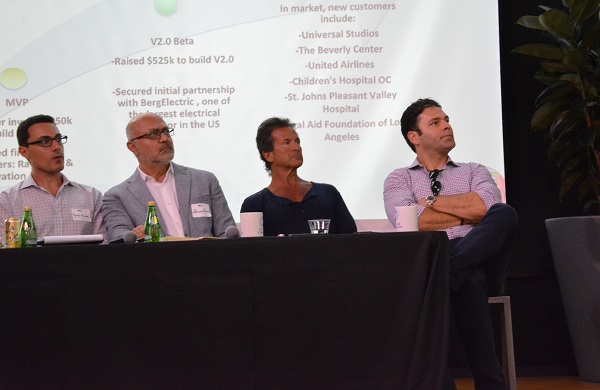
A panel of four investors listened as eight early-stage startups presented their pitches to them–and to the community.
Four of those entrepreneurial teams came from Tel Aviv University, while four were local.
While we can’t possibly do justice to all eight entrepreneurs in limited space, here are several of the highlights.
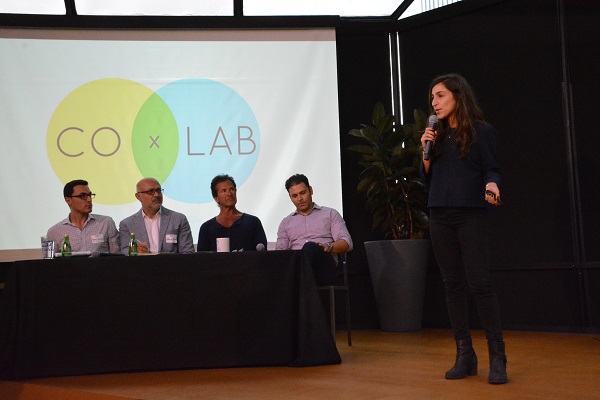
Tel Aviv University MBA candidate Corinne Gottlieb led off the pitches with an intriguing idea. Gottlieb, who’s one of three co-founders of “Co Lab”, told her listeners that the seeds of her venture started with a part-time job in a coffee shop.
“To get more clients in, we decided to do pop-ups,” she said. A cooky vendor, she continued, wanted to come in for one day and sell her baked goods. So the business owner agreed.
“She sold out all her cookies and the bar increased its revenue by fifty percent,” she said. “That’s how Co Lab was born.”
However, Gottlieb says, Co Lab does “pop-ins” as opposed to “pop-ups”.
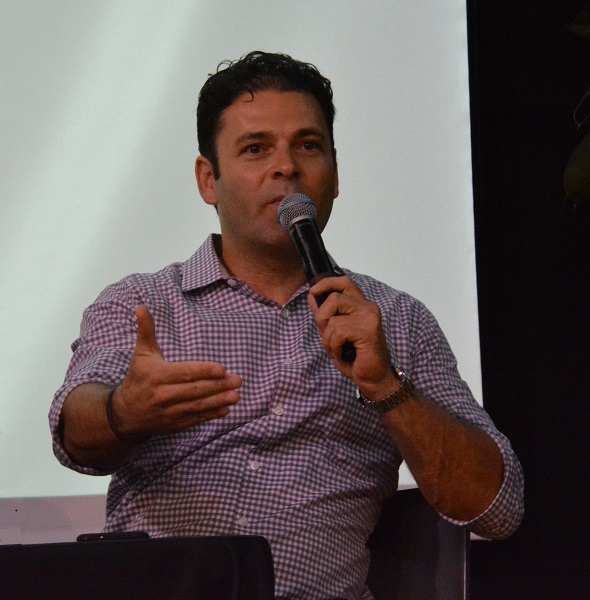
“What’s the difference?” panelist and Cross Campus co-founder and CEO Ronen Olshansky wanted to know.
“A pop-in is the idea that a business is operating within an existing business,” Gottlieb replied. “It creates a sense of urgency.”
Among the feedback she received from the panel: get more experience, to know the market.
“I think (your) first step (is), actually do fifteen or twenty pop-ins,” Olshansky suggested. “You’re going to learn so much…I think there’s something there, but there’s a lot more.”
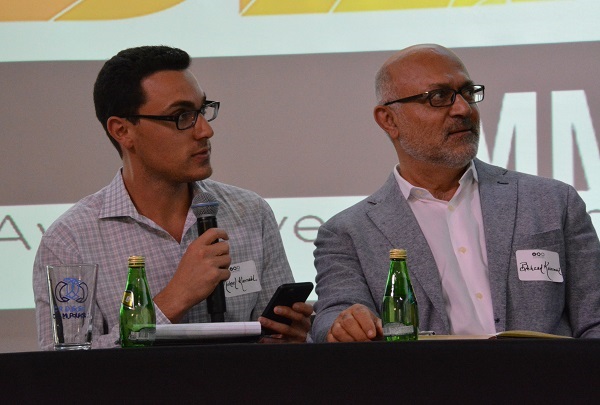
“Very small, very cool, are you guys live yet?” was a question panelist Michael Kiannald put to Tap Replay CEO and Founder Si Jacobs, after his pitch.
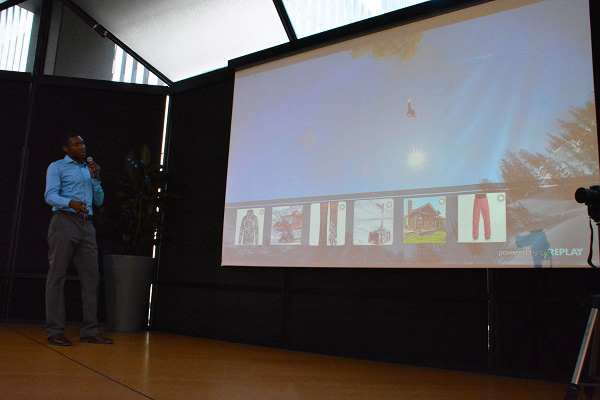
Jacobs, who had just previewed his shoppable television content, said he was talking with a major retailer. However, the panel suggested some tweaks to his idea.
“How many times have you, when you watch (movies) stopped and bought something?” Olshansky asked.
And Kiannald said the competition was already in place. “YouTube will let you buy something you see in someone’s videos (since 2015),” he said.
“That’s something we do have to figure out (how to get the viewer more comfortable with shopping while viewing),” Jacobs commented.
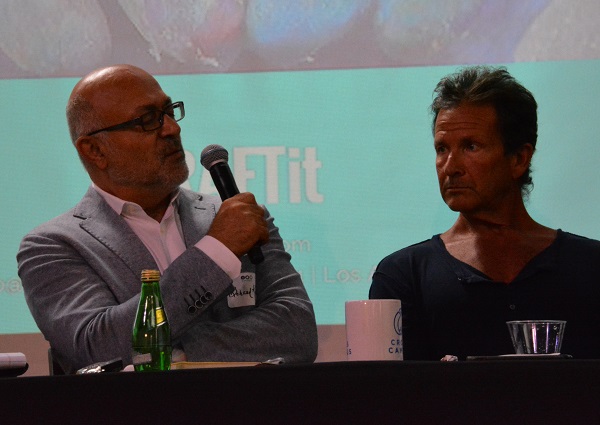
Security was a question that came up, as well, on the startups’ Internet components.
“You’re vetting the providers. Are you vetting the (customers) who’ll come to someone’s home?” panelist and Cross Campus co-founder Behzad Kianmahd asked Craftit digital marketplace co-founders Eden Zohar and Janice Karbachinskiy.
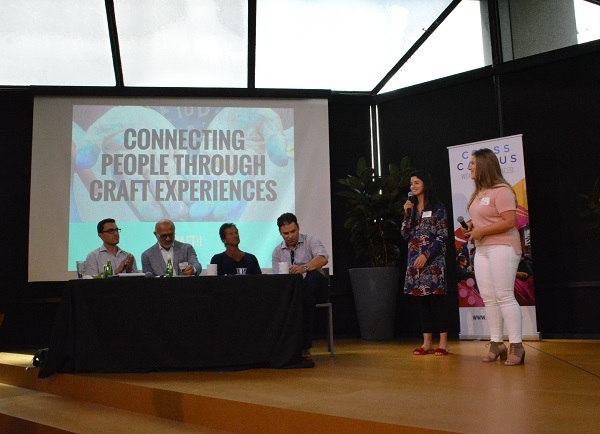
“I would strive to see how AirBNB does (this). Try to host a…quality experience and see what happens,” Olshansky advised.
And an exciting startup update came towards the end of the afternoon.
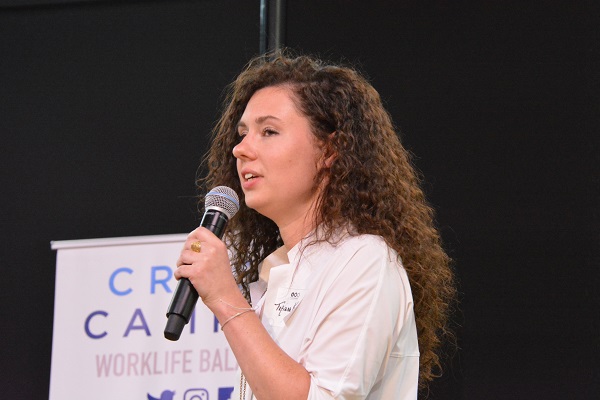
MARBL.io co-founder and CEO Tatiana Koffman , who’d promoted her new startup during IDEAS™ Immersion’s earlier event, “The Funding Life Cycle of Start-Ups”, was back.
Now, she told the panel and community, her platform had launched.
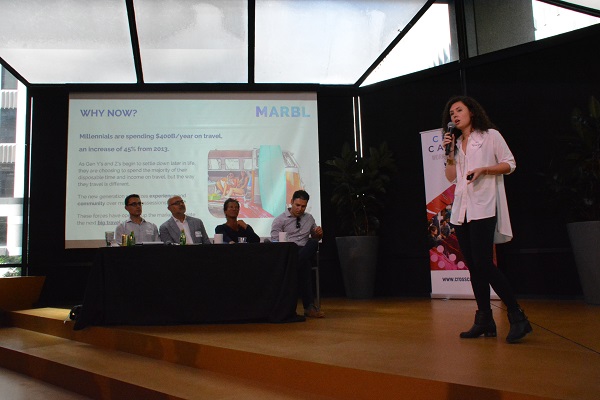
MARBL.io, as Koffman explained, is an online global travel community, featuring reviews, content and forums all for, and by, millennials. The platform, she said, did three things: served as a planning tool, allowed travelers to discover new destinations, and gave them the opportunity to connect with others–both before and after their trip.
“The launch has been larger than we expected,” she said. “Now, I believe, we have seven thousand people trying to get on the platform. We’re letting in people as fast as we can. The platform’s been up for two days.”
“We are creating an ecosystem from scratch,” Koffman continued. “It’s based on community, but also around content.”
Congratulations to all the entrepreneurs of IDEAS™ Immersion 2017–and to IDEAS™ Immersion, for putting a great foundation under everyone’s dreams! We’ll give you the dates of their open-to-the-public Chicago events when those become available.
